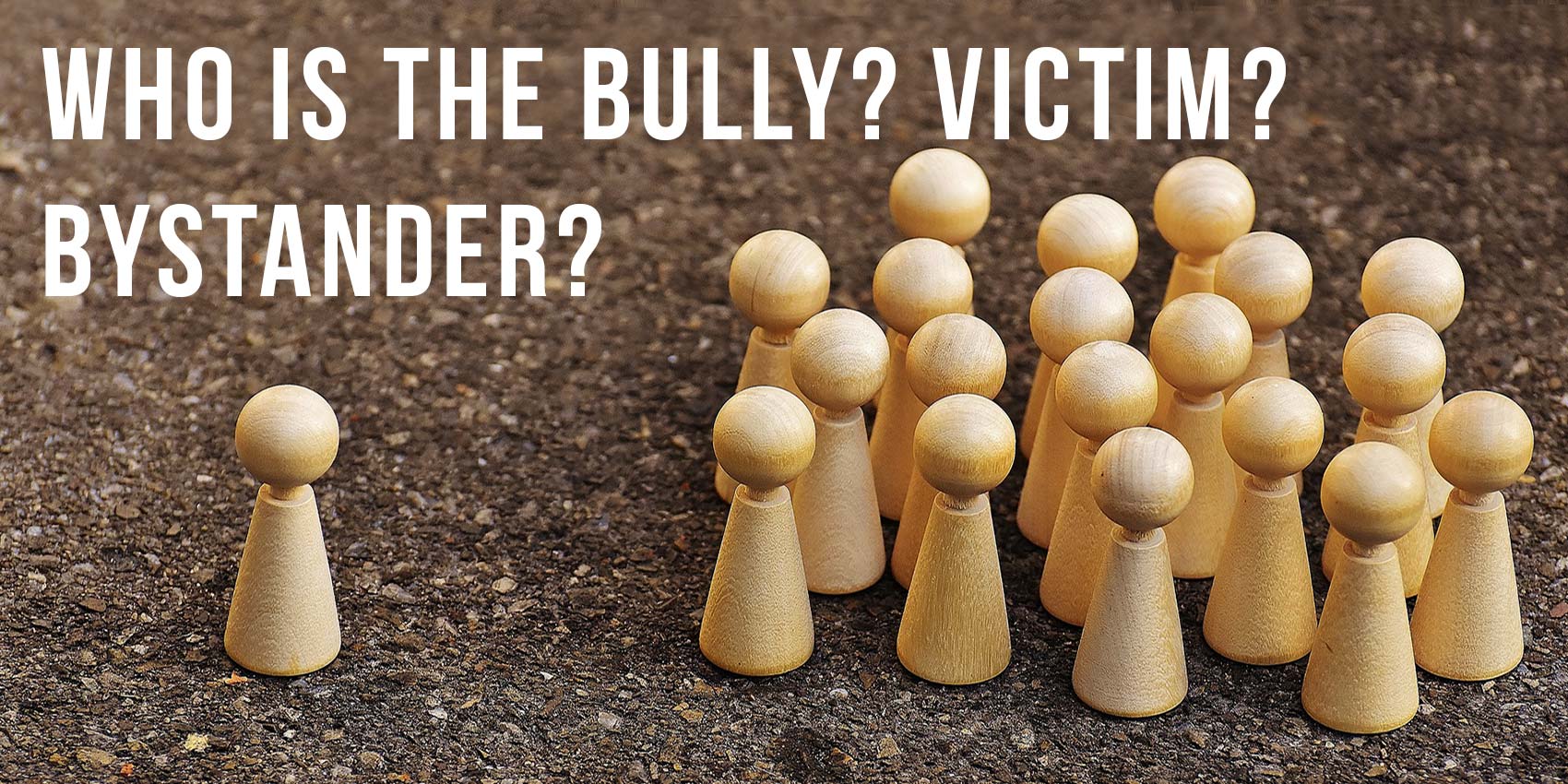13 Sep Who is the bully? victim? bystander?

Who is the bully?
People who bully come in all shapes and sizes. You can’t necessarily look at a person and know if she is a bully or not. And she’s certainly not going to wear a name tag that says, “Hi. I am A. Bully.” That’s why it’s so important to understand what bullying is and to recognize when it is happening, then you can choose to do something about it (see the next sub-post for tips).
How do you know who is going to bully?
You don’t.
Movies made in the dinosaur age depict bullies as being bigger, rough-looking males who walked around with a posse at their backs and a scowl on their faces. Ha! If only that really did happen today, the problem might be a lot easier to handle. People who bully today are every size, shape, race, popularity and gender. In fact, an increasing number of people who bully are actually people who were bullied themselves! Bullied turned bully. Clearly, no easy way to identify a bully exists.
Except for one: People who bully generally do not show empathy for others. Empathy is the ability to stand in someone else’s shoes – to relate to what another person is feeling or going through.

Empathy: Noun 1. the intellectual identification with or vicarious experiencing of the feelings, thoughts, or attitudes of another.
(www.dictionary.com)
Empathy is a trait that we are all born with, but, like a muscle, needs to be exercised to stay active. Make sense? So if a person grew up in a home where people didn’t exercise this ability, that person might not show as much empathy as the next person. People who lack empathy, in this case bullies, can’t relate to the hurt they cause. People with empathy understand when others are hurting.
Who is the victim?
Again, no one walks around with a sign that says, “HI! I’m A. Victim!” Many people who are bullied feel shamed or embarrassed that they have been bullied and so often they try to hide it. The victims of bullying can often begin to feel bad about themselves and begin to see themselves as deserving of the bully’s attention. Nothing could be further from the truth; no one deserves to be bullied.
People who bully will look for people over whom they believe they have power. Thus, they tend to pick on others who are more shy, or socially isolated, such as new kids who may not have found their “group” yet. People who bully also look for teens who are a bit different. In adolescence, many teens are looking to “fit in,” therefore, kids that are “different” often feel insecure and people who bully like to use that against them. But remember, different is not bad, it’s just different. Adults like different. You like different – you didn’t pick your favorite singers, athletes or teachers because they were the most “average” in their fields.
Who is the bystander?

Bystander: Noun a person present but not involved; chance spectator; onlooker.
(www.dictionary.com)
But in the case of bullying, this definition isn’t totally accurate. A bystander in relation to bullying is not the primary victim, but can still get hurt. Watching someone else be mistreated can be a horrible experience and bystanders can experience all sorts of emotions such as sadness, fear and guilt.
In addition, the bystander – get ready – is often considered part of the bullying. What? How? But I didn’t….! In today’s world, if you see bullying and don’t do anything to help the victim, you are considered a part of it. If you do nothing, you didn’t create it, but you allowed it to go unchecked and you have become… part of the problem.
Being a bystander can be really terrifying. Standing up to a person who bullies (especially if that person is your friend and keeps you protected), can feel like jumping off a cliff. But part of the reason bullying has become such an epidemic (meaning extremely prevalent; widespread – another great vocab word) problem is because people often look the other way when bullying happens, or they think, it’s not my problem. But the truth is, it is. We all create the environment in which we live. If you don’t help others, who will help you when you need it?
The next three posts will help you figure out how to help yourself whether you are the victim, bully or bystander…




WLKHS 1409
Posted at 14:27h, 13 DecemberI have been a victim and a bystander and both have felt really depressing.